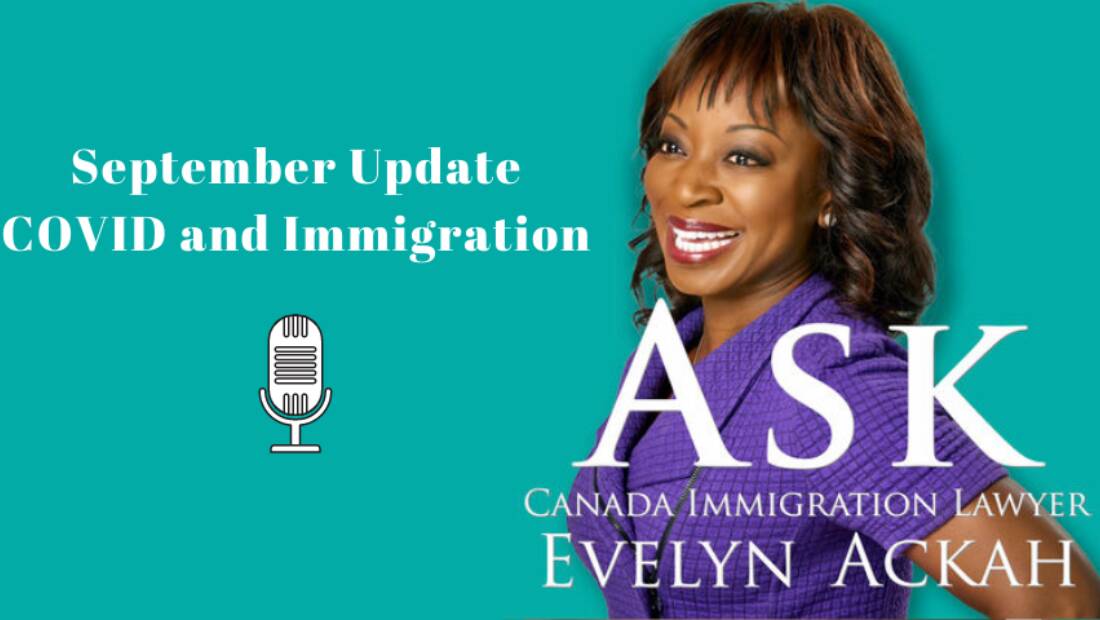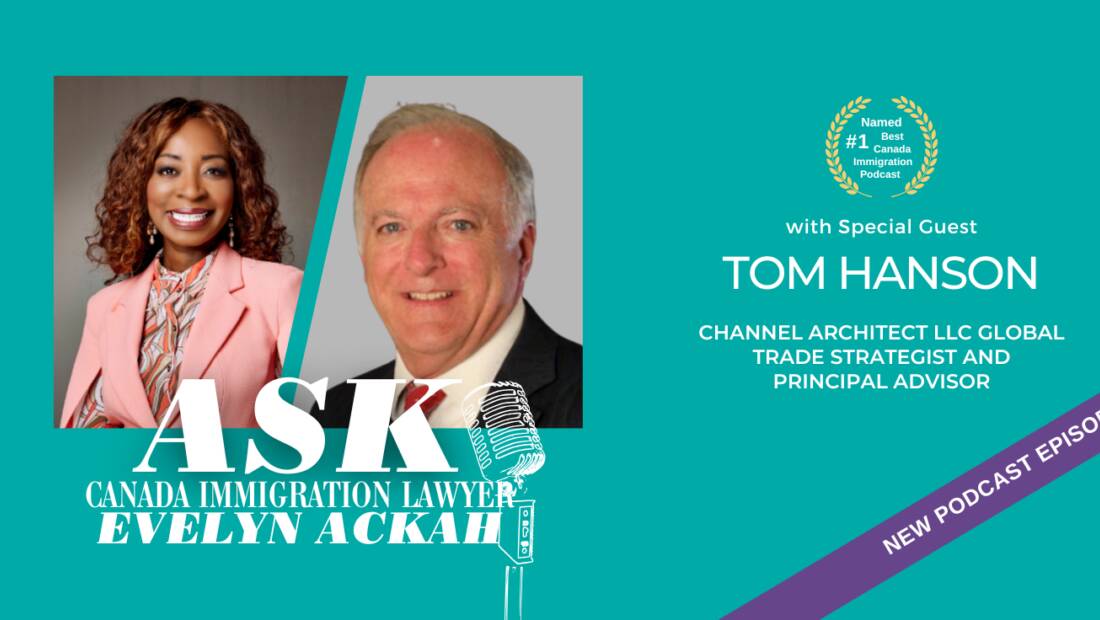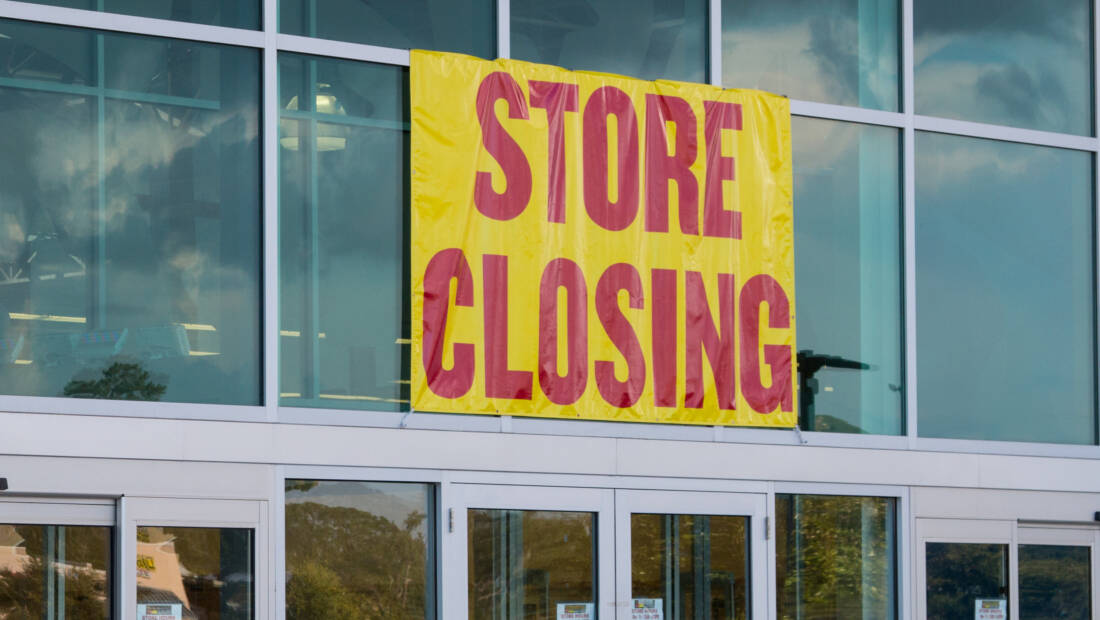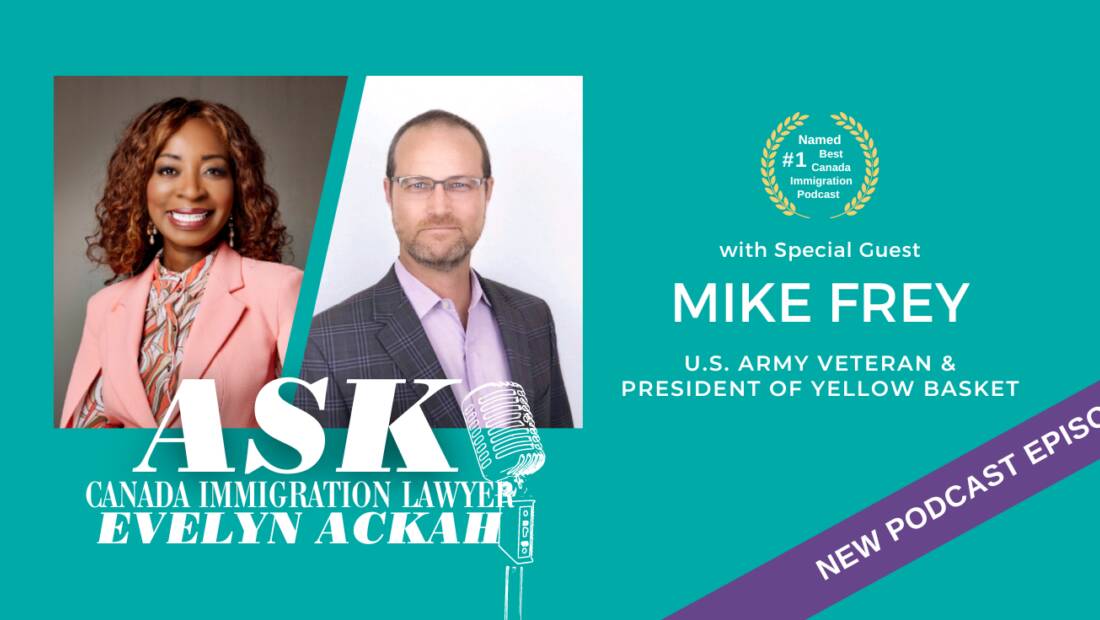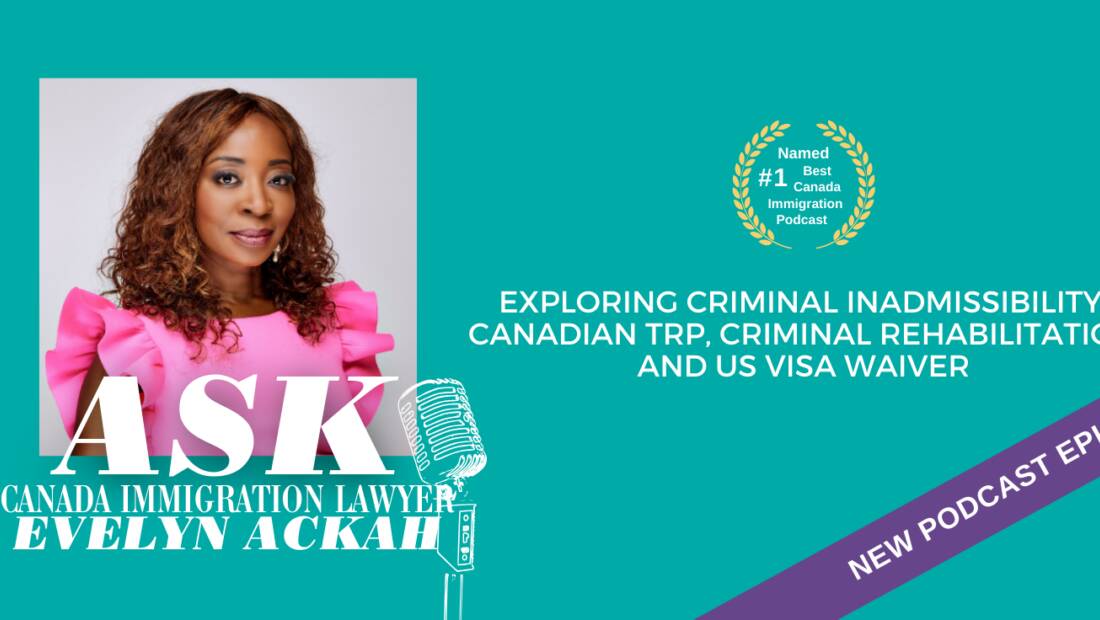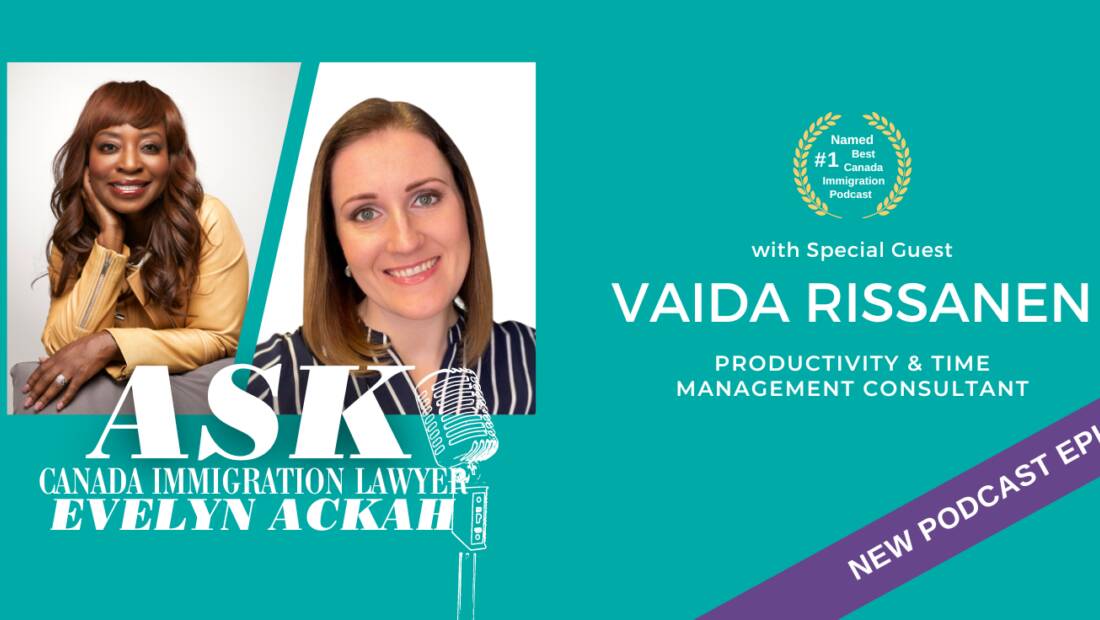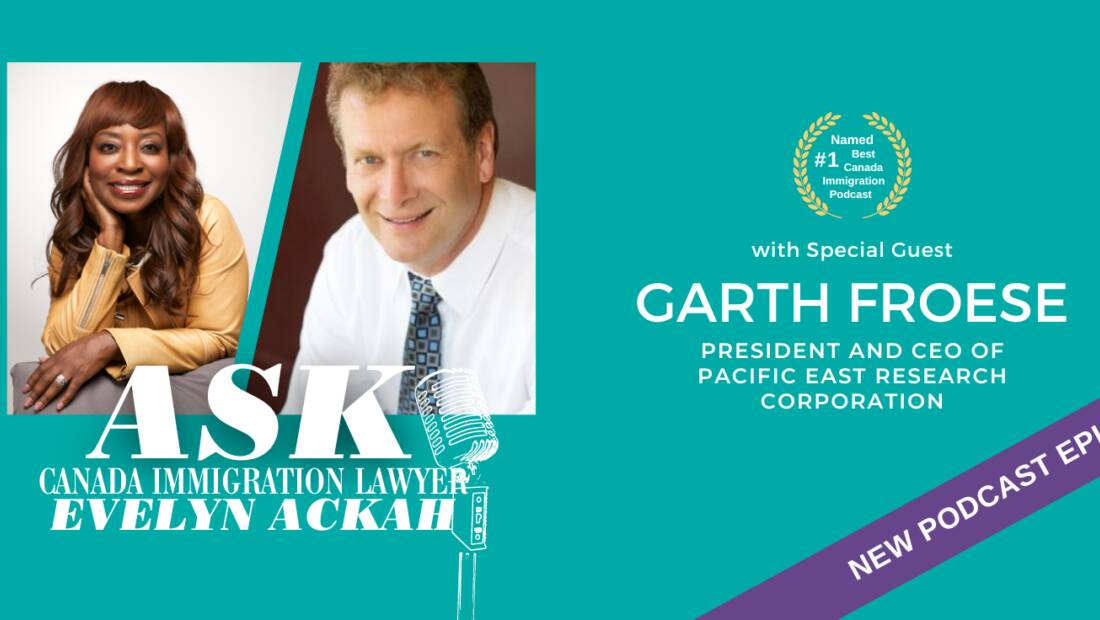Or listen on your favourite podcast app
Canada immigration lawyer Evelyn Ackah discusses the latest news and updates on how COVID-19 is impacting Canadian and U.S. immigration including:
- U.S. Canada border closures and cross-border travel
- Essential workers and business travel into Canada and the U.S.
- Family reunification travel into Canada
- Mandatory quarantines
- Express Entry
- LMIAs and employing foreign workers
- Spousal permanent residence
- Americans looking at options for moving to Canada
- Realistic timeframes for immigration applications
COVID's impact on Canada U.S. business immigration has affected big corporations and small business owners as well as individuals and families. For more information and solutions for crossing borders seamlessly to work or live in Canada or the United States and other business immigration solutions during COVID, contact Ackah Business Immigration Law today at (587) 324-2232 Ext. 100 or 1-800-932-1190 or email us directly.
Transcription
Evelyn Ackah:
Good day everyone. This is Evelyn Ackah from Ask Immigration Lawyer Evelyn Ackah podcast. Thank you so much for joining me. I'm also the founder and managing lawyer of Ackah Business Immigration Law. And today I have the pleasure of giving you updates on lots of things immigration-related, and hopefully providing some value and information. The goal for us at Ackah Business Immigration Law and with the Ask Immigration Lawyer Evelyn Ackah podcast is to share resources to ensure that you have up-to-date information and that you're working from a place of knowledge and knowing before you make decisions and make moves. So again, today we'll be talking about a lot of different moving parts. We're going to talk about COVID, and the border, and immigration and some of the changes that are occurring, as well as go into processing times and some of the impacts of COVID and how you need to know what's realistic now in terms of timing for your applications, and also being patient with us because we do all we can to provide our clients with the best service possible and the most realistic timeframes.
Evelyn Ackah:
And COVID unfortunately has really shifted that and changed a lot of our timeframes. And so we do the best we can to ensure you get the most current and up to date information. At Ackah Business Immigration Law, we're also doing regular web form updates and inquiries to immigration on our client files that are in process. Because everything seems to be taking longer and longer. So again, COVID has certainly impacted the practice of immigration law, it's impacted the processing times, and it's impacted the crossing of borders. It's not so easy and it's not so seamless. And I think it's more and more important now that you work with a professional who is up-to-date and knows what they're doing. So let's talk first about the border. Just yesterday on September 15th, 2020, the Canadian government announced that it had extended again the border closings and the limitations for the border.
Evelyn Ackah:
So this has been continuing now since COVID started six months or more, and every month we think this might be the last month. Realistically, I think given the situation in the United States that the border closures will probably continue on into next year. I can't see with the continued expansion of the COVID illness in the United States and the spread of it that the border in Canada will be opening anytime soon, unfortunately. It is open, however, for business into Canada and into the United States. And so, I think it's really important that you know that people are still crossing the borders for different reasons. First, they're crossing the border to be reunited with their family members. So if you are married to a Canadian or permanent resident and you're outside the country, the government of Canada has made provision so that you can be reunited and you can come into Canada with appropriate paperwork to prove the relationship and ensure that you can be reunited with your partner.
Evelyn Ackah:
So that's one. The other area where people are being reunited or people are coming into Canada is by way of work. So if you're a professional and you are needed to come into Canada to start a business, to work in Canada, to meet your obligations as an employer or an employee and do inter-company transfers, under NAFTA you're able to apply for work permits at the airport into Canada. Now I must say we had a client yesterday, it was very timely, who had struggles getting onto the plane, even with a very strong NAFTA intercompany executive work permit application with him and his family members. The airlines gave him such a difficult time because they're now under the premise that they are immigration, some of them, and that they have the ability to pre-screen. So my poor client went through quite a long two hours before he could even get on the plane.
Evelyn Ackah:
And then when you landed immigration, 30 minutes later he had his work permit because the package was complete. So these are some of the changes we're experiencing when it relates to coming into Canada. Even under NAFTA, you have to be prepared to make your case. You have to be prepared to educate the airline officials who do not know anything about immigration law, and you have to be prepared to advocate for yourself. That is the one thing we're finding. So yes, people who are making work permit applications under NAFTA, professional, NAFTA intercompany, and those that are considered essential services are entering Canada. And we have had no troubles on the US side because of their lack of restrictions compared to Canada. They're entering the United States and applying for TN visas and ELS on a daily basis with very little challenges. So, that's some good news. At least going south you can still apply for your work permit.
Evelyn Ackah:
The other thing is that we want to talk about what happens to those people who are coming in from Europe or other countries. They cannot just fly in. So for instance, most Europeans are visa-exempt, and they're usually able to get on the plane from their home countries and come to Canada. Unfortunately now because of COVID, all work permit applications must be submitted first at the consulate in the country before they can enter Canada. Once they've been approved and they have met the requirements for essential workers, met the requirements for intercompany transfer, or let's say SITA, under a consultant category, they're able to come in upon approval. They are only able to get on the plane with an approval. And even we've been hearing from clients in Germany where they've also experienced similar challenges getting on the plane. Right now airlines are very, very worried about being fined or being exposed or being restricted from flying if they happen to have an incidence of COVID, or if they let somebody on the plane who's not supposed to be on the plane.
Evelyn Ackah:
So we're seeing a lot of struggles for clients to even just get through that barrier even with an approval, before they can get to Canada and submit their paperwork of approval and get started. Everybody that comes to Canada from another country has to quarantine. So this is also the latest, is understanding that you must quarantine and that you must be prepared to have a quarantine plan and do your two weeks of quarantine, and make sure you don't have any illness when you enter. And that you're going to comply and abide by the rules and regulations of the Canadian government and the Canadian health authorities to ensure that you quarantine. This is mandatory. So, if you go to the States for a week, you come back, you have to quarantine for two weeks.
Evelyn Ackah:
This is mandatory. To keep our people, and our Canadians, and our country safe. Okay. I think that's really reasonable and very important. What else is there to chat about today in terms of changes and updates? There've been now, I think, some updates in the labor market process. Given the economy in Canada, as we know, there are a number of people unemployed, especially here in Alberta, Canada. And so, we've been informally advised that it's going to be very difficult to get LMIA's and obviously that makes sense. Unless we can take care of our Canadian workers first, we should not be employing foreign workers. And unless the position is so unique and so rare that it's very difficult to hire for, I think the chances of LMIA success are getting slimmer and slimmer. Other provinces different, however, so British Columbia and Ontario and many other provinces continue to grow, continue to need skilled workers, and highly, highly technical specialized workers.
Evelyn Ackah:
So we continue to do LMIA's for some other provinces, but we're very, very limited in terms of Alberta, because of our unemployment situation coupled with the oil and gas crisis, we've really faced a double whammy with COVID as well. So I think it's important to understand that. We're also doing a lot of people who, let's say, want to look at Spousal Permanent Residents. So, for instance, you have a spouse in another country or you want to marry somebody from another country before you can do a spousal permanent residence application you have to be able to get them to Canada and maybe go and get married outside of the country first, and then come into Canada and quarantine and bring your spouse with you. You can start the Permanent Residence application from here. Many of our clients have been separated as a result of COVID and for months and months.
Evelyn Ackah:
And so, it's definitely motivating people to decide, let's just get on with this marriage. Let's go get married somewhere else, and then come into Canada together and start the Spousal Sponsorship, which then allows for an open spousal work permit after about five or to six months, then they can become eligible to work in Canada and get the benefits, as well healthcare here in Canada. So, that's something we're seeing more of. I have to say, I mean, we don't know what's going to happen with the election in the South. And so, we are getting a number of calls from Americans looking at options to move to Canada, wanting to understand what the challenges will be for them, and how they can get here either before the election or after the election based on the results. So I feel like if you have any of those questions or concerns, before you make any decisions you must consult a knowledgeable immigration lawyer, call us at Ackah Business Immigration Law.
Evelyn Ackah:
We'll be happy to help you, to talk through the strategy and the analysis and all that's at stake before you do anything. The phone number is (403) 452-9515. And give us a call so we can help you to see if Canada is really the right destination. I heard the other day from one of my colleagues in the States, and she wants to move to Kuala Lumpur, she's done, she's in Florida now. And I just said, "We don't help with that." But I'm happy to talk through some of the issues and see if I can find a good contact for her to start her own process to immigrate. So people are definitely on the move these days. A few more things to chat about as we focus on updating you on immigration law in Canada and the US, one of the other things I think about is Express Entry, Permanent Residence.
Evelyn Ackah:
This is the federal skilled worker category or the Canadian experience class or federal skilled worker. This is where people can apply to become permanent residents. We expect that there will be a selection hopefully this week. It's been a few weeks, and usually every three or four weeks there's a selection. So again, that might be an area for people who are highly educated and skilled to look for ways to come to Canada so that they can pursue their dreams as permanent residents and their careers and raise their families, et cetera. So that is always an option. It's still an option. We continue to process Permanent Residence applications. I have to say that I am seeing that the process is slowing down. And that's mostly because of the fact that all of the government workers, or the immigration officials and workers around the world, they're all working from home as well.
Evelyn Ackah:
So just like us, we're all having to adapt to working from home or in a different environment in the office. They're also dealing with that, and that is slowing down processing a little bit, but they continue to process and approve applications. And we're happy to say we'll continue to do them successfully and happy to talk to any of you if you have any questions at all. So that's a lot of information. I'm just trying to see if there's anything else that we can help you with. I think the biggest thing to understand right now in the COVID world is, who can travel to Canada? Right now, only Americans if they're making Work Permit applications. No visitors, no tourism is permitted into Canada. Even business visitors are facing significant scrutiny because you must be having a Work Permit, generally speaking, and you have to be able to quarantine.
Evelyn Ackah:
So you can't just come in for a two-day meeting and then leave. If you come in, you have to quarantine. And it's very hard to get an exemption from quarantine. You must be exempt and you must have the essential worker requirements met, and you must have the approval from Public Health Canada to be exempted from quarantine. Otherwise, you must do the two weeks. So, that is the latest update. That's all I think I have for you today. If you have any questions at all and you want to talk through this, feel free to give me a call at Ackah Business Immigration Law. Again, my name is Evelyn Ackah. Thank you for joining Ask Immigration Lawyer, Evelyn Ackah podcast. And thank you for joining the Ackah Law Facebook page and LinkedIn page. If you have any questions we can be reached online, ackahlaw.com or (403) 452-9515. Take good care and stay safe. Thank you. Bye-bye.

